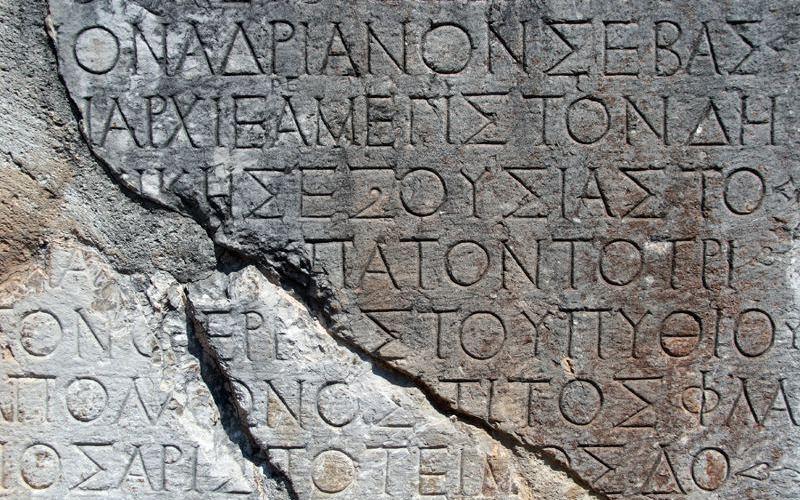
Multilingualism and Minority Languages in Ancient Europe
This project aims to shed light on some important defining features of past and modern European identity. It focuses on multilingualism, languages in contact and the various types of cultural involved in this process. Finally, this project examines the concept of prestige and ‘transnational’ languages and their impact on minority languages.
These features are often perceived as a typical problem of contemporary Europe, linked to globalisation and recent migrations, rather than a constitutive part of our identity since its foundation. However, the most ancient written documents found in the European continent already show traces of multilingualism and intense language contact. One of the main problems is that in antiquity transnational and prestige languages such as Greek and Latin tended to replace in writing various local languages, which as a consequence are poorly attested and are usually classified as Restsprachen.
The project consists of five research units. Each will focus on different aspects of multilingualism in Ancient Europe. The researchers will study specific poorly documented minority languages and explore different types of language contact. As a result, various superficially studied or unpublished documents written in Phrygian, Lydian, different dialects of Ancient Greek, Latin, Messapic and Cappadocian Greek will be edited, commented upon and examined in their historical context.
At a more general level, each research unit will reflect on the sociolinguistic dynamics underlying the new philological, linguistic, historical and cultural data that will be collected during the project. This will result in a better understanding of the linguistic and cultural identities of present Europe.
Prof. Albio Cesare Cassio
Project Leader
Sapienza University of Rome
Italy
Project Partners
Prof. Albio Cesare Cassio
Project Leader
Sapienza University of Rome
Italy
Prof. Marina Benedetti
Foreigners University of Siena
Italy
Prof. Emilio Crespo
Autonomous University of Madrid
Spain
Prof. Mark Janse
Ghent University
Belgium
Prof. Alexander Lubotsky
Leiden University
Netherlands
Associate Partners
Lario Capasso
Associazone Italian di Cultura Classica (AICC)
Dr Marloes Deene
Nederlands Klassiek Verbond
Dr Johann Vandewalle
Centre for Oriental Languages & Cultures
Theofanis Issakidis and Vassiliki Papadopoulou
Panhellic Association of Cappadocian Unions
Dr W.H.M. Huppertz
Allard Person Museum
Prof. Ioannis N. Kazazis
Ministry of Culture, Education and religious Affairs - Centre for the Greek Language
Pierre Ducrey and Gary Vachicoura
Foundation Hardt
Mauro Tulli
Associazone Italian di Cultura Classica - Delegazione di Pisa
Prof. Salavatore Caruso
Liceo Classico G. Galilei
Paola Fasano
Liceo Classico Machievelli in Florence
Alessandro Bechini
Oxfam Italia Intercultura
Prof. Emilio Crespo Guemes
Fundacion Pastor de Estudios Clasicos